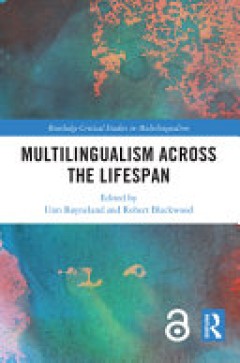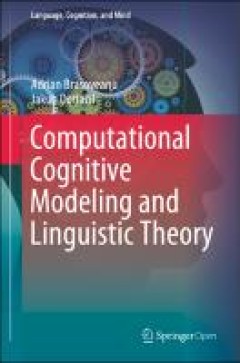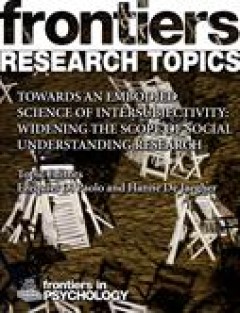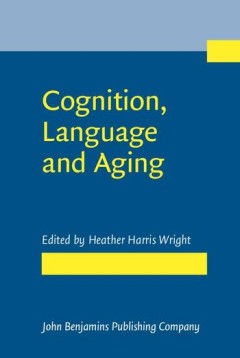Filter by

Multilingualism across the lifespan
This innovative collection examines key questions on language diversity and multilingualism running through contemporary debates in psycholinguistics and sociolinguistics. Reinforcing interdisciplinary conversations on these themes, each chapter is co-authored by two different researchers, often those who have not written together before. The combined effect is a volume showcasing unique and dy…
- Edition
- -
- ISBN/ISSN
- 9781003125815
- Collation
- xx + 251 p
- Series Title
- -
- Call Number
- 306.446 MUL m

Concepts, frames and cascades in semantics, cognition and ontology
This open access book presents novel theoretical, empirical and experimental work exploring the nature of mental representations that support natural language production and understanding, and other manifestations of cognition. One fundamental question raised in the text is whether requisite knowledge structures can be adequately modeled by means of a uniform representational format, and if so,…
- Edition
- -
- ISBN/ISSN
- 9783030502003
- Collation
- ix, 486p. : ill.
- Series Title
- -
- Call Number
- 401.9 CON c
Uncertainty in deliberate lexical interventions: Exploring Esperanto speakers…
Language managers in their different forms (language planners, terminologists, professional neologists …) have long tried to intervene in the lexical usage of speakers, with various degrees of success: Some of their lexical items (partly) penetrate language use, others do not. Based on electronic networks of practice of the Esperanto speech community, Mélanie Maradan establishes the foundati…
- Edition
- -
- ISBN/ISSN
- 9783732992379
- Collation
- 373p.: ill.
- Series Title
- -
- Call Number
- 414 MAR u

Computational cognitive modeling and linguistic theory
This open access book introduces a general framework that allows natural language researchers to enhance existing competence theories with fully specified performance and processing components. Gradually developing increasingly complex and cognitively realistic competence-performance models, it provides running code for these models and shows how to fit them to real-time experimental data. This…
- Edition
- -
- ISBN/ISSN
- 9783030318468
- Collation
- 294 p.; 22 cm.
- Series Title
- Language, Cognition, and Mind ; Volume 6
- Call Number
- 401.9 BRA c

Towards an embodied science of intersubjectivity: widening the scope of socia…
An important amount of research effort in psychology and neuroscience over the past decades has focused on the problem of social cognition. This problem is understood as how we figure out other minds, relying only on indirect manifestations of other people's intentional states, which are assumed to be hidden, private and internal. Research on this question has mostly investigated how individual…
- Edition
- -
- ISBN/ISSN
- 9782889195299
- Collation
- 413 p.; 22 cm.
- Series Title
- -
- Call Number
- 824.18 PAO t

Cognition, language and aging
Age-related changes in cognitive and language functions have been extensively researched over the past half-century. The older adult represents a unique population for studying cognition and language because of the many challenges that are presented with investigating this population, including individual differences in education, life experiences, health issues, social identity, as well as gen…
- Edition
- -
- ISBN/ISSN
- 9789027267313
- Collation
- viii, 248p. : ill.
- Series Title
- -
- Call Number
- 408.46 COG c
 Computer Science, Information & General Works
Computer Science, Information & General Works  Philosophy & Psychology
Philosophy & Psychology  Religion
Religion  Social Sciences
Social Sciences  Language
Language  Pure Science
Pure Science  Applied Sciences
Applied Sciences  Art & Recreation
Art & Recreation  Literature
Literature  History & Geography
History & Geography